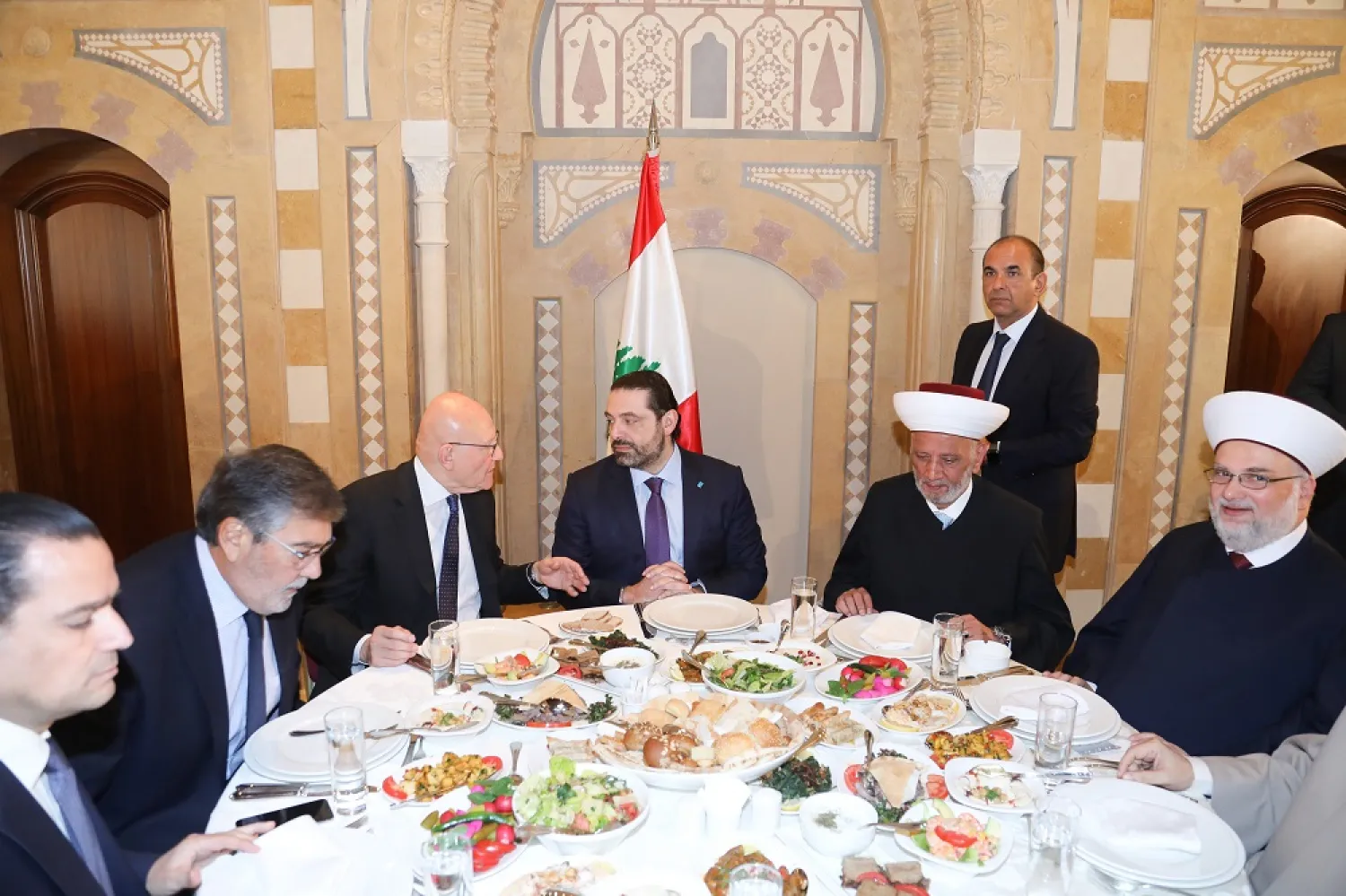Prime Minister Saad Hariri stressed Tuesday on the need for Lebanon to commit to the policy of disassociation from regional conflicts in wake of the ongoing crises in the region, especially the military developments that resulted from the chemical attacks in Syria’s Douma.
“Some are trying to circumvent the rules of disassociation and are using electoral and media platforms to attack Arab brothers,” Hariri said during a luncheon banquet held at Beirut’s Center House.
The event was held in honor of Grand Mufti Sheikh Abdul Latif Darian and a number of scholars and clerics.
The PM refused for some parties to transform Lebanon into a “mailbox” to send political and military messages on behalf of the regional powers.
He made his remarks in an indirect reference to “Hezbollah” chief Hassan Nasrallah.
Meanwhile, the families of Islamist prisoners threatened on Tuesday to prevent the May 6 parliamentary elections by blocking roads across the country in case parliament does not approve a proposed general amnesty law.
The families said they would also boycott the elections, to exert pressure on Hariri’s Mustaqbal Movement.
A meeting is expected between those families and the Prime Minister soon to discuss the new developments that halted an amnesty law ahead of the parliamentary elections.
Two days ago, Justice Minister Salim Jreissati said following a meeting with Speaker Nabih Berri that the amnesty law “is a political decision taken by political consensus, and now there are no ongoing projects related to the pardon.”
The minister’s comments created shock among the families of Islamist prisoners, who had expected an amnesty before the end of this month.
On Tuesday, they started taking escalatory measures by blocking off roads in northern Lebanon.
The families will determine their next move after holding talks with the premier.
“We plan to ask for a meeting with the Prime Minister to learn what happened. We do not want to misjudge any party. Hariri is in contact with all politicians and therefore he knows what prompted the surprising change in their position,” Sheikh Salem al-Rifai, head of the Muslim Clerics' League told Asharq Al-Awsat on Tuesday.
The cleric asserted that the families of Islamist prisoners would not take any escalatory measures before inquiring about what happened.









